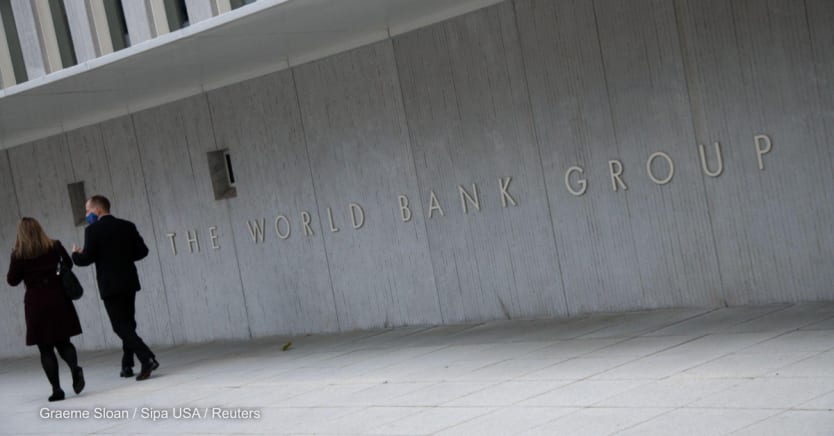World Bank scraps Doing Business rankings due to data irregularities

The World Bank is retiring its flagship Doing Business publication, citing “data irregularities” in recent editions of the global business climate index.
An independent investigation document released Thursday also found that Kristalina Georgieva, who served as the bank’s chief executive officer from 2017 to 2019 and is now the managing director of the International Monetary Fund, applied “pressure” to have China ranked more favorably.
Data concerns reopen debate over World Bank Doing Business rankings
In 2020, the World Bank's decision to delay publication of its Doing Business report to investigate allegations of data "irregularities" reopened the debate over whether the highly visible ranking system should exist at all.
In a statement Thursday, the multilateral lender noted that complaints about the rankings had focused on “ethical matters,” including ones related to “current and/or former Bank staff,” and indicated that trust in the institution was on the line.
The concerns about data manipulation relate to the 2018 and 2020 editions, and they reportedly focused on China, Azerbaijan, the United Arab Emirates, and Saudi Arabia. The bank paused the annual rankings last year as the issues emerged.
In 2020, Saudi Arabia was named the top improving economy, despite signs of sharp repression, including the killing of journalist Jamal Khashoggi. China was also among the top 10 most improved countries.
The investigation noted that a senior staff member had changed Saudi Arabia’s data to “reward” the country. It also said that Georgieva “became directly involved in efforts to improve China’s ranking.” This included her encouraging changes to the methodology used for the ranking.
The investigation indicated that Georgieva saw this as key to keeping in Beijing’s good graces, thanking one official involved in the process for doing his “bit for multilateralism.”
The investigation noted specific “pressure” applied by the then-CEO and her adviser to make “specific changes to China’s data points in an effort to increase its ranking at precisely the same time the country was expected to play a key role in the Bank’s capital increase campaign.”
In a statement emailed to Devex, Georgieva rejected the findings.
“I disagree fundamentally with the findings and interpretations of the Investigation of Data Irregularities as it relates to my role in the World Bank’s Doing Business report of 2018. I have already had an initial briefing with the IMF’s Executive Board on this matter,” the statement said.
The investigation also noted that pressure was applied by the office of the president, “presumably at the direction of President [Jim] Kim, to change the report’s methodology in an effort to boost China’s score.” Kim was the bank’s president from 2012 to 2019.
The independent investigation, conducted by international law firm WilmerHale, built on the earlier work of the bank’s ethics and business conduct office. It entailed a review of some 80,000 bank documents and interviews with more than three dozen current and former bank employees. The findings are “those of WilmerHale alone,” the report noted.
The bank’s annual ranking system has been highly influential, shaping policies in developing and emerging markets as countries sought to move up the index. However, critics have long argued that the report promotes low-tax systems, deregulation, and liberalization policies, prioritizing multinational business interests over other concerns such as human rights, development, and the environment. One academic said it encouraged a “race to the bottom.”
Concerns had been raised in the past even within the bank about the rankings. In 2013, a panel recommended doing away with the ranking system, arguing that it could be misinterpreted as a “one-size-fits-all template for development.” In 2018, the World Bank’s then-chief economist, Paul Romer, told The Wall Street Journal that the report’s methodology was flawed and unfair. Romer then resigned.
The bank said Thursday it would adopt a “new approach” for assessing the business climate in countries and stressed that it “remains firmly committed to advancing the role of the private sector in development.”
Search for articles
Most Read
- 1
- 2
- 3
- 4
- 5




